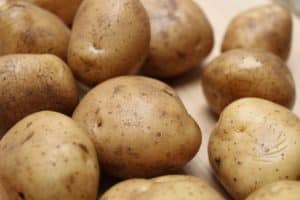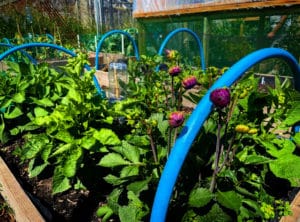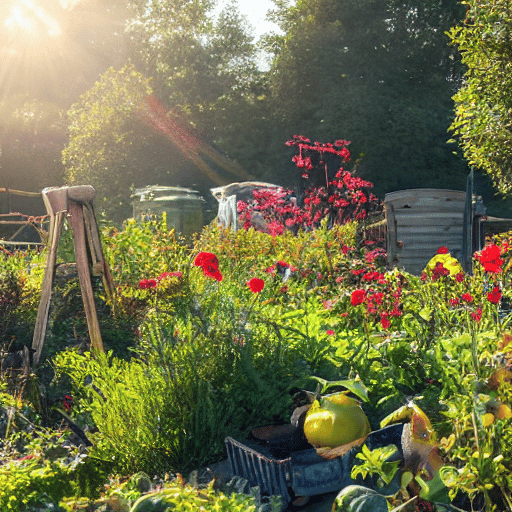Table of Contents
September Jobs On The Allotment
September jobs on the allotment. According to the meteorological calendar, the 1st of September is the first day of autumn. This month temperatures start to fall away, and the days are getting noticeably shorter. There’s definitely a change in the mood on the allotment.
September is the month to make the most of your harvest and start planning your winter maintenance jobs. We still have plenty of runner beans, potatoes, tomatoes and gherkins to harvest. The weather can still be warm, so keep on top of your watering.
Here are some jobs you can be getting on with this month:
Planting/Sow
If you have any new strawberry plants grown from seed or from runners, get them in the ground this month. They will have a good chance to get established and you could get a good crop next year. Now is a good time to sow some winter lettuces, the grown is still warm and this will give you a good supply of salad leaves throughout the winter. Get your over-winter onion sets into the ground this month. Plant them 3-4 inches apart with the top just below the soil surface.
Here’s a list of other things you can plant and sow this month:
Radishes
Rocket
Spinach
Oriental Leaves
Spring onions
Lifting Maincrop Potatoes

September is the time to start lifting your maincrop potatoes. Any that are showing signs of blight should be lifted and disposed of immediately. Blight can spread very quickly so it’s important to act fast. Once they have all been lifted, give the plot a good dig over and remove any remaining potatoes. This will help to prevent the spread of blight next year.
Dahlia Plants
On our allotment, we have a flower bed just for Dahlias. Continue to take cut flowers this month because they will continue to flower right up until the first frost. Then it will be time to dig up the tubers and store overwinter.

Composting
Cut back plants or foliage that had dropped or gone over and put it in the compost bin. If you’re not already making your own compost I strongly recommend you start. There are many benefits to composting your own garden waste. In the UK, we produce around 11 million tonnes of waste each year, and only around 44% of that is recycled. By composting your garden waste, you can help reduce the amount of waste that goes to landfill, and also create a valuable resource for your garden.
Composting is a natural process that helps to break down organic matter into a rich, soil-like substance. This can be used to improve the texture and fertility of your soil, and also helps to retain moisture and nutrients. In addition, composting can help to suppress weeds and pests and can increase the yield of your crops.
So if you have the space, I highly recommend starting your own compost heap. It’s a great way to recycle garden waste, and it will also help to improve the health of your garden. Click here to buy your own compost bin
Seeds
Now is a good time to collect seeds from plants that have done particularly well or that you a very fond of. Growing new plants from seed in the spring can be very rewarding and can save you a small fortune. So, go out there and collect your seeds and remember to label the packets!!!
Pests and Diseases
Keep an eye out for pests and diseases this month, and take action to control them if necessary. September is a good time to treat for aphids, as they can seriously damage your crops. You can also start to think about applying mulch to your beds to suppress weeds and help retain moisture.
September Jobs on the allotment Conclusion
September is a great time to be getting on top of your gardening jobs. There are still plenty of vegetables to harvest, and the weather is still warm enough for planting new crops. September is also a good time to start composting your garden waste and collecting seeds for next year’s plants. Keep an eye out for pests and diseases this month, and take action if necessary. September is a great month for getting your garden ready for winter. So get out there and enjoy the September gardening!

